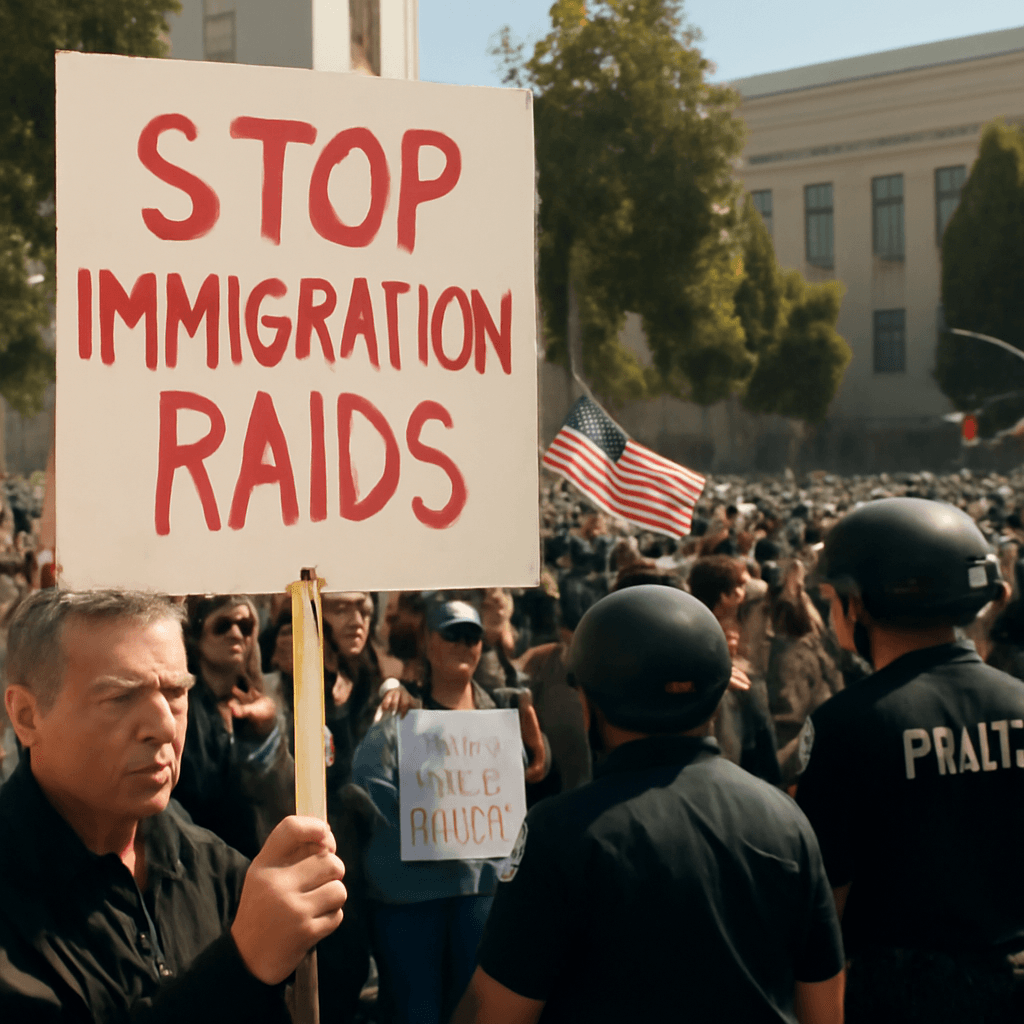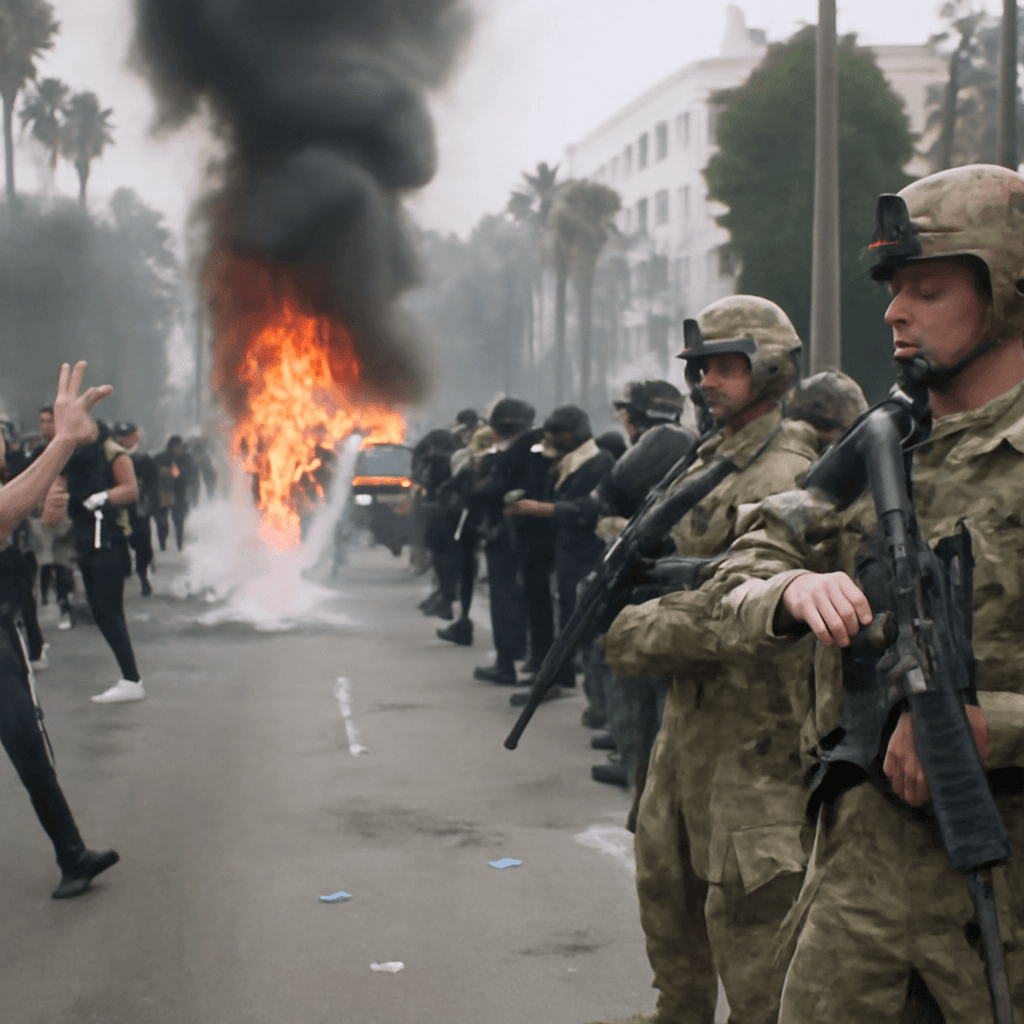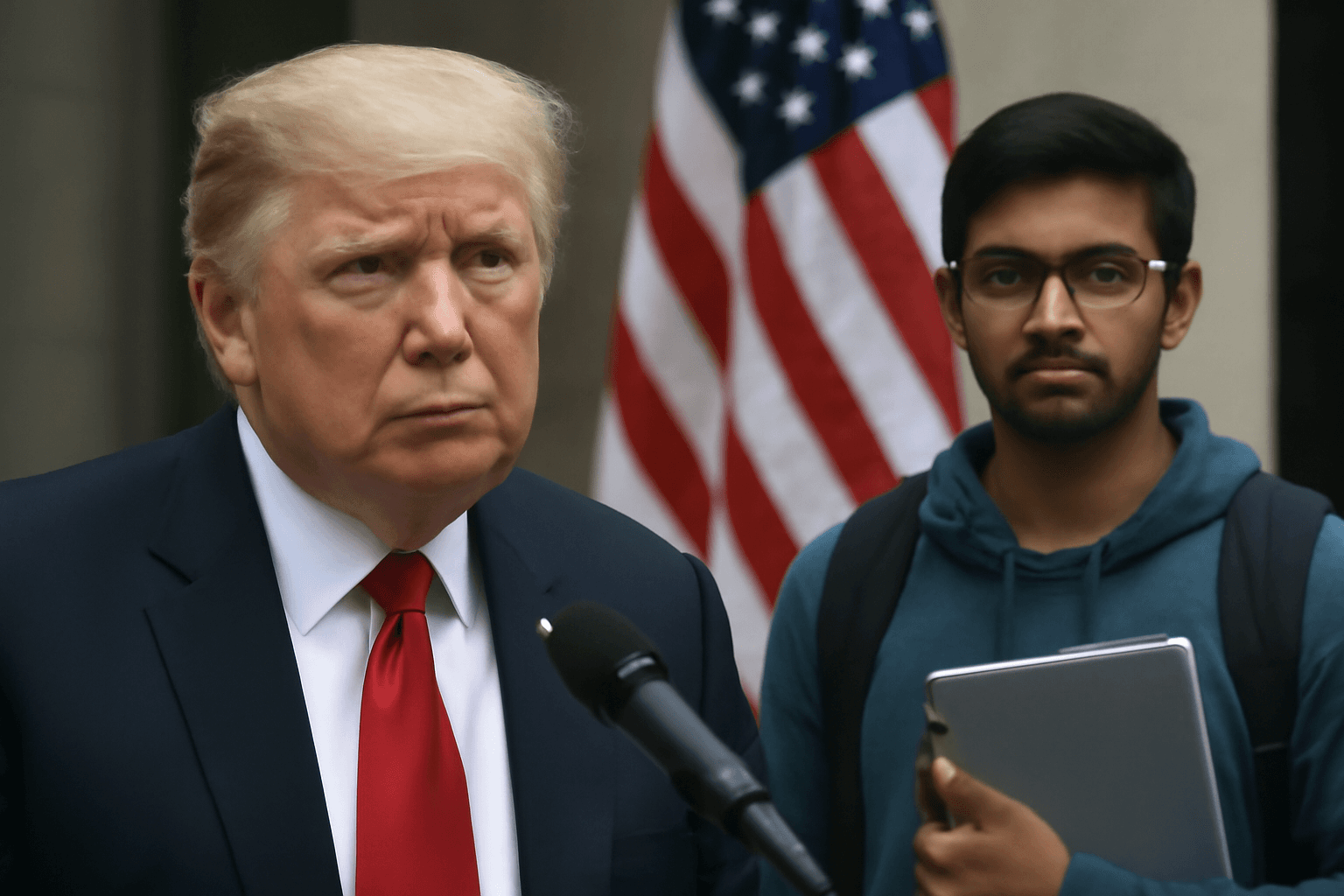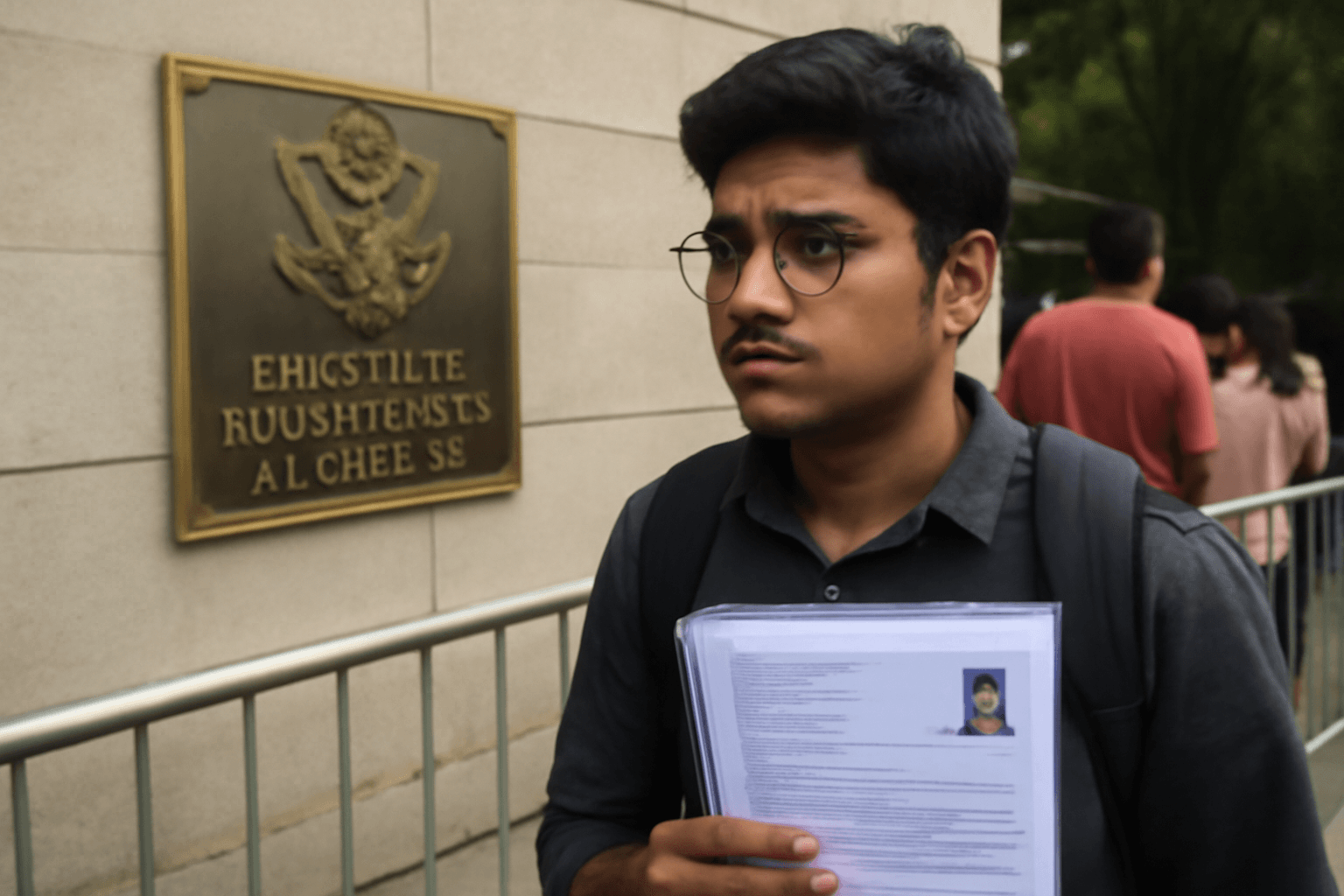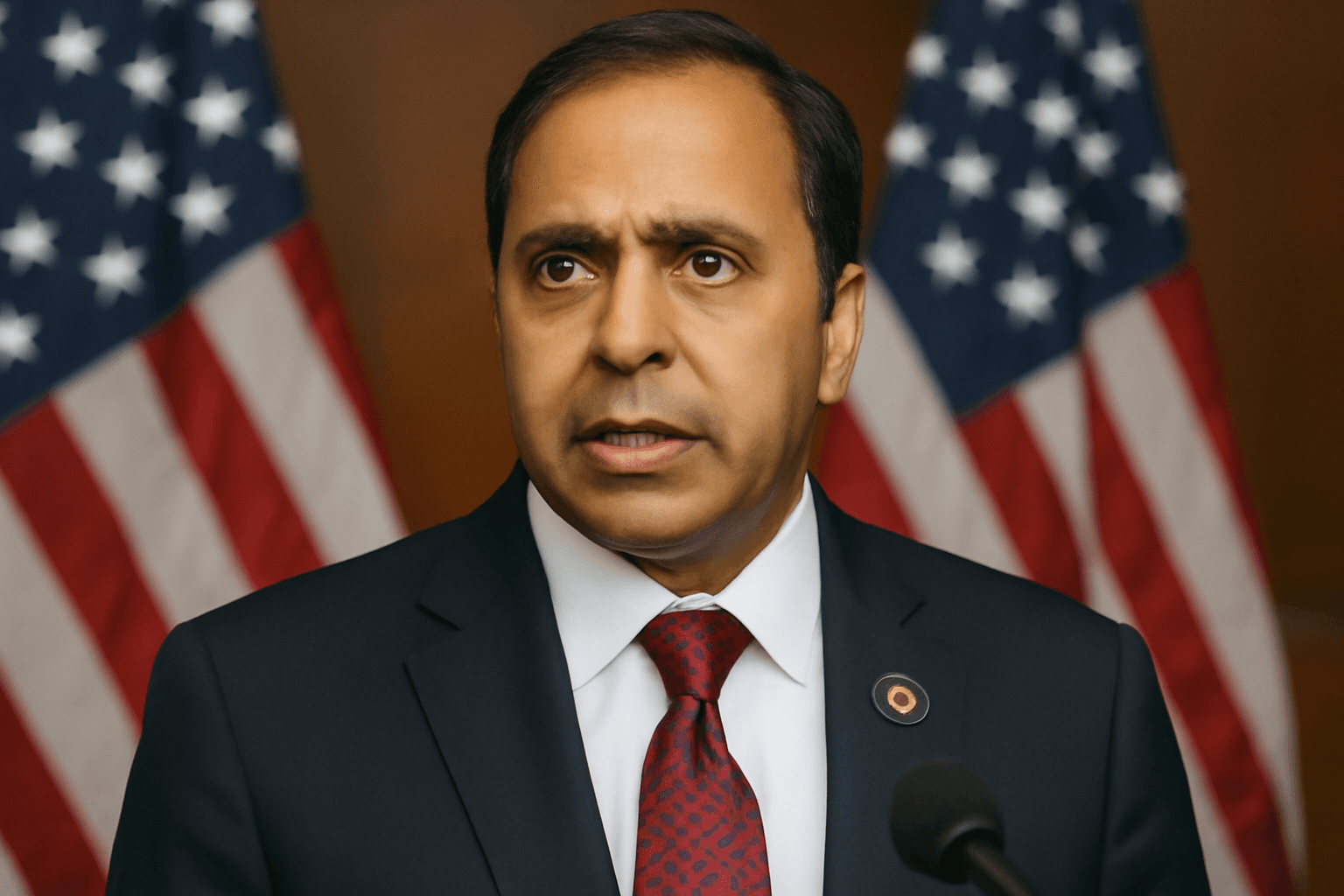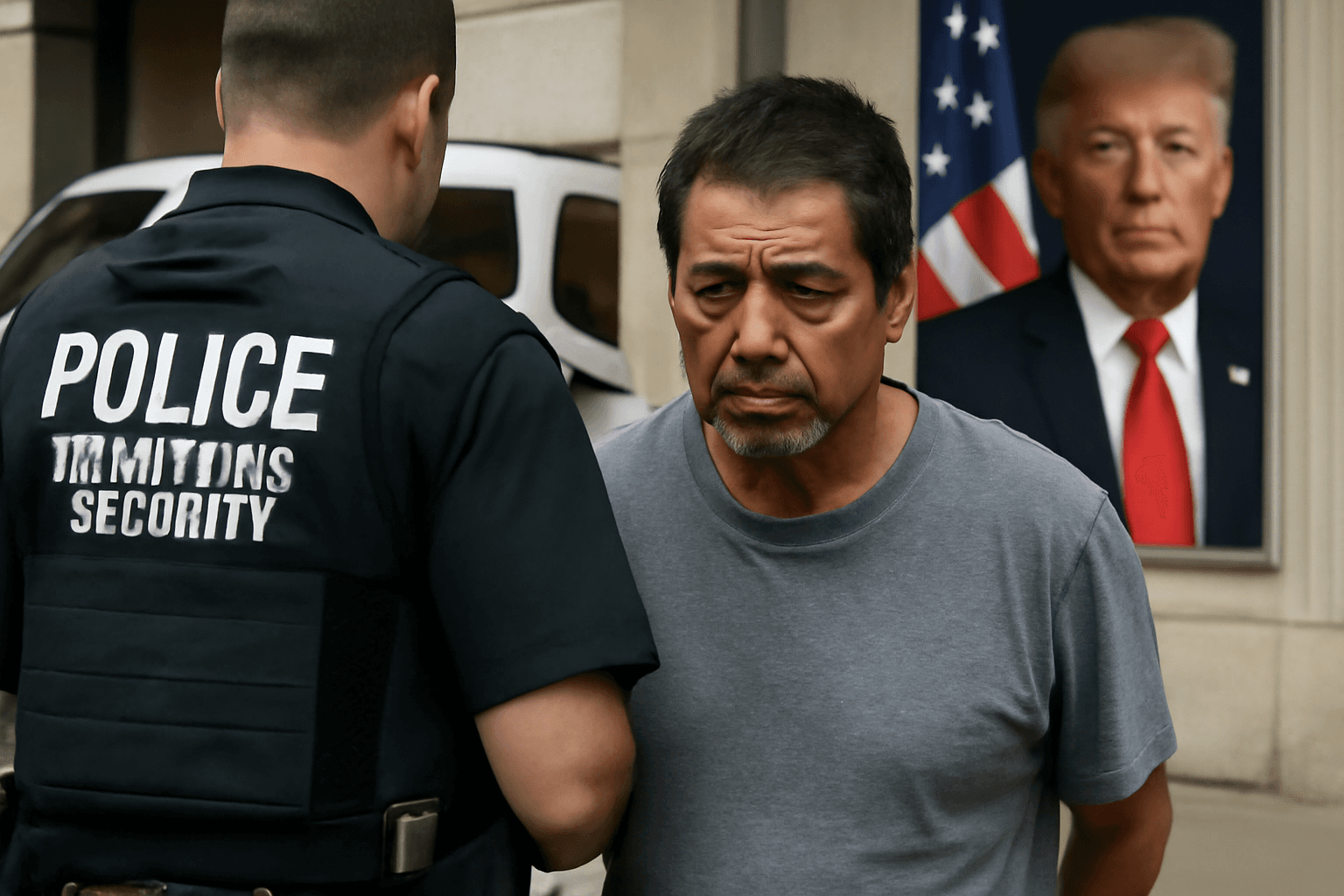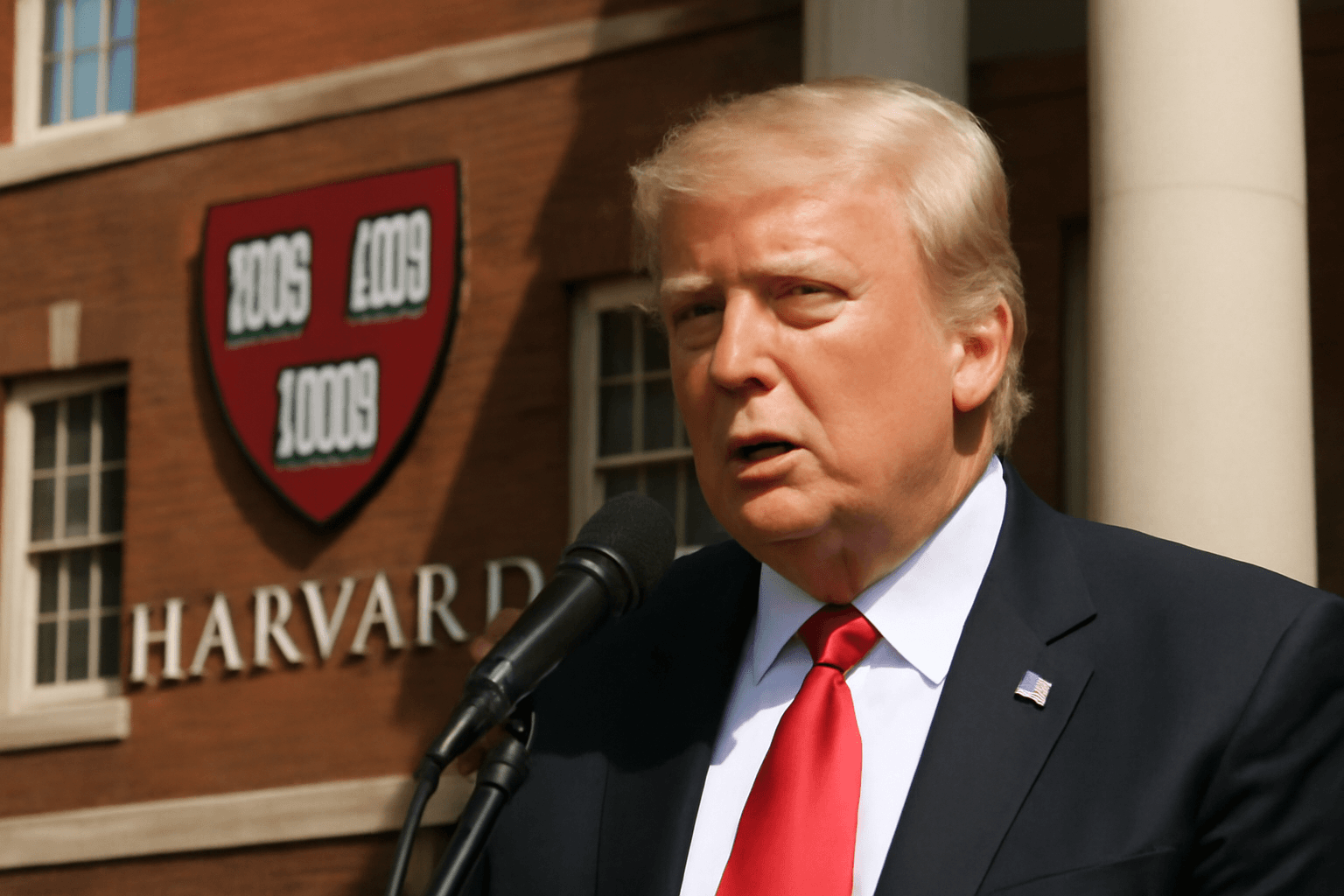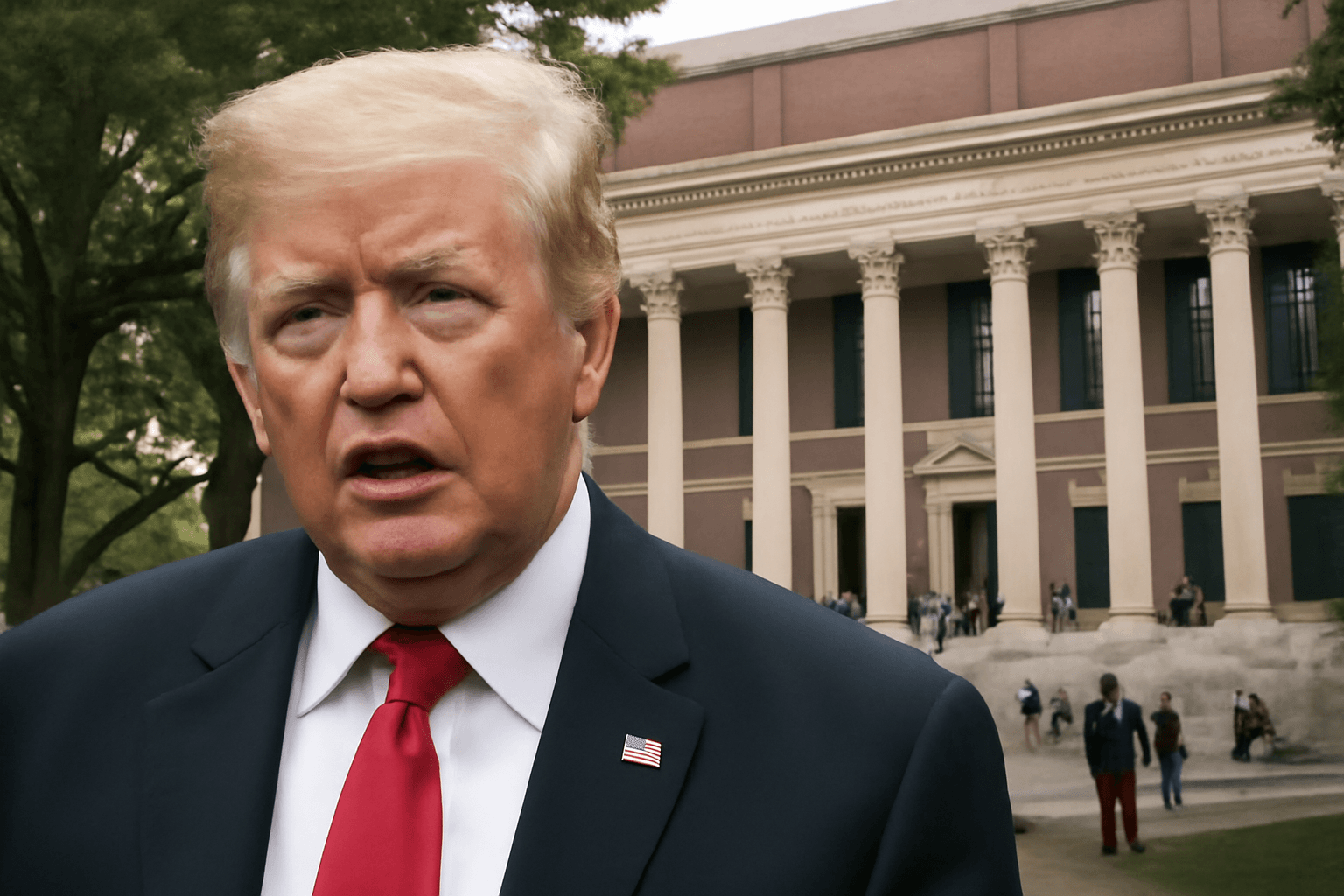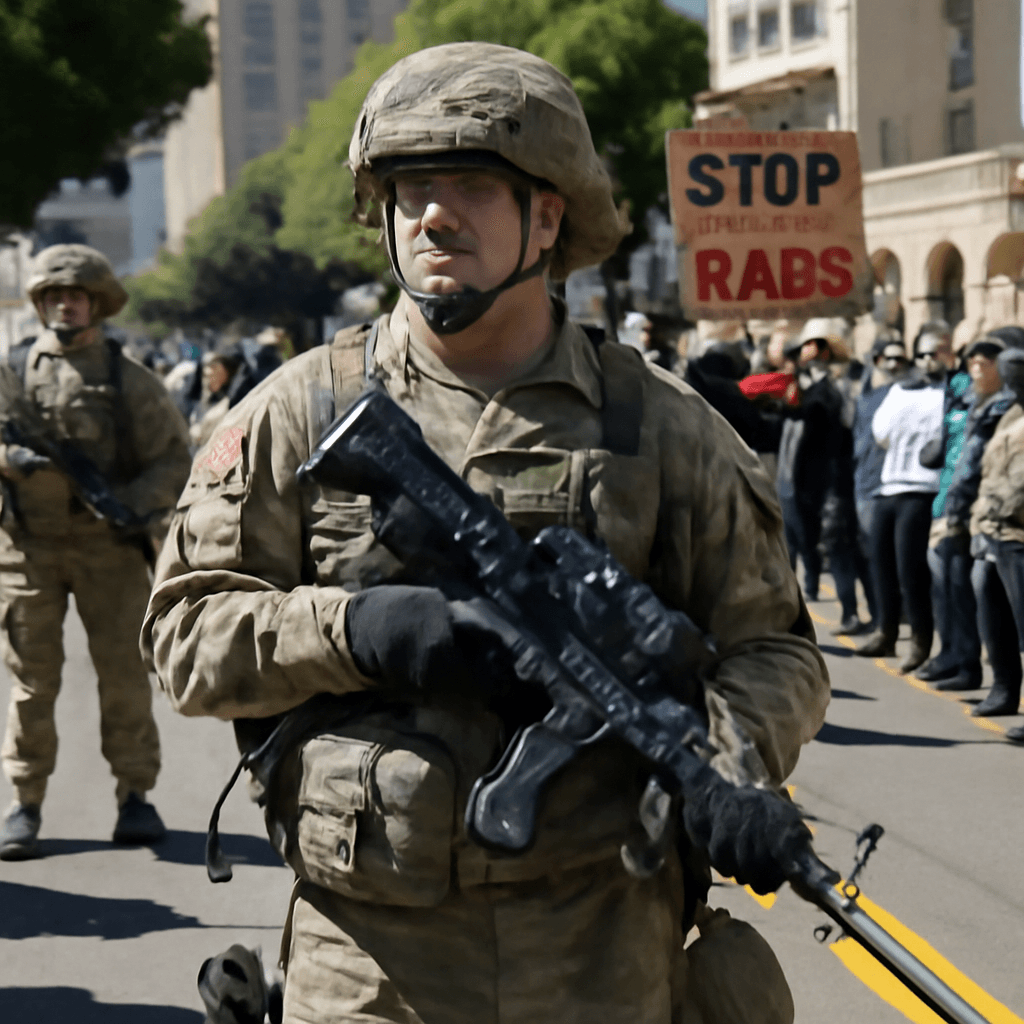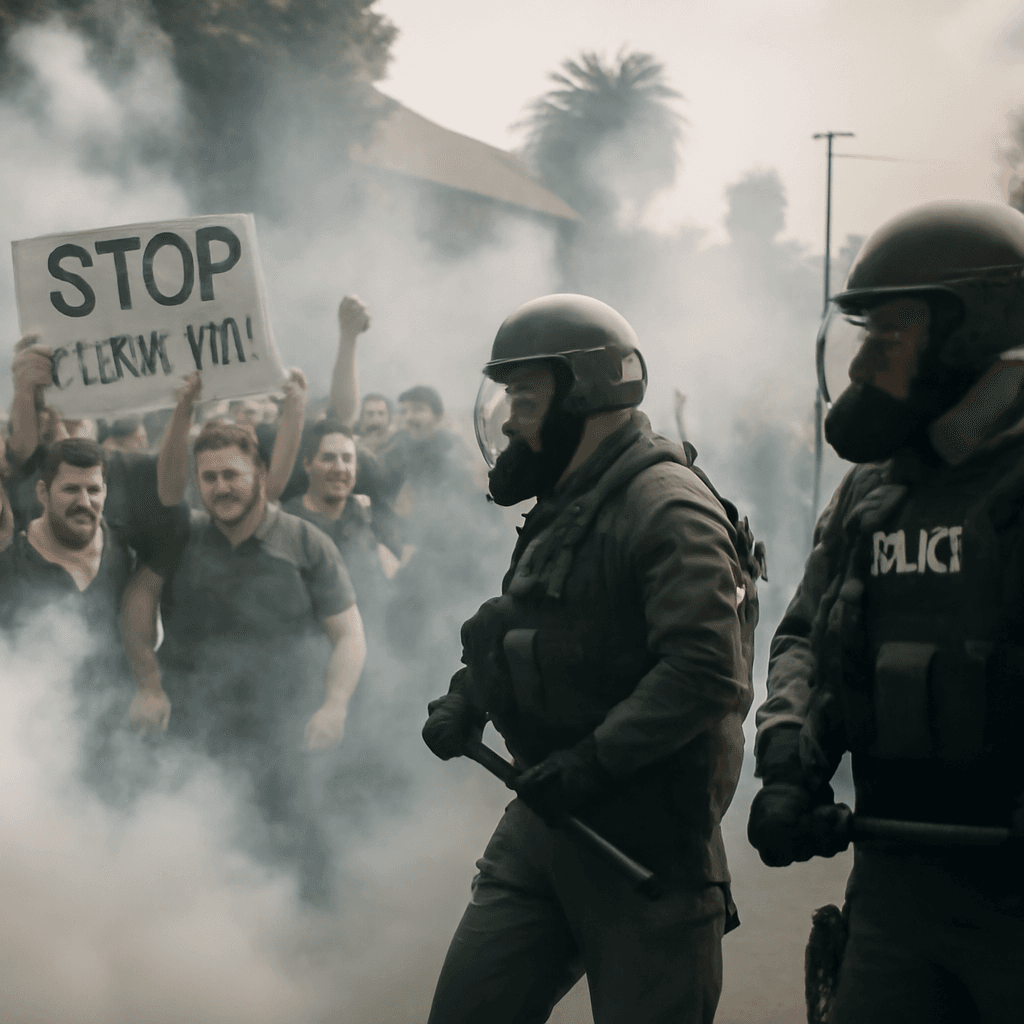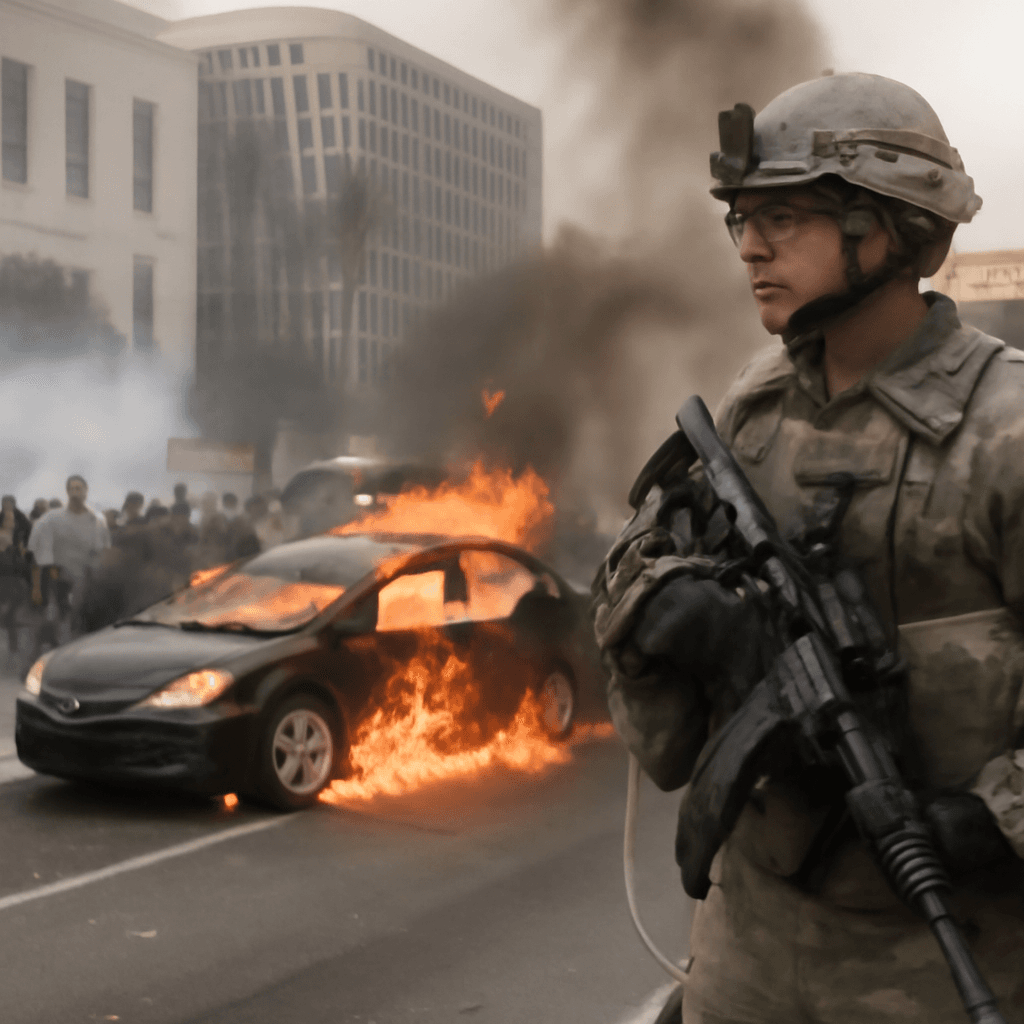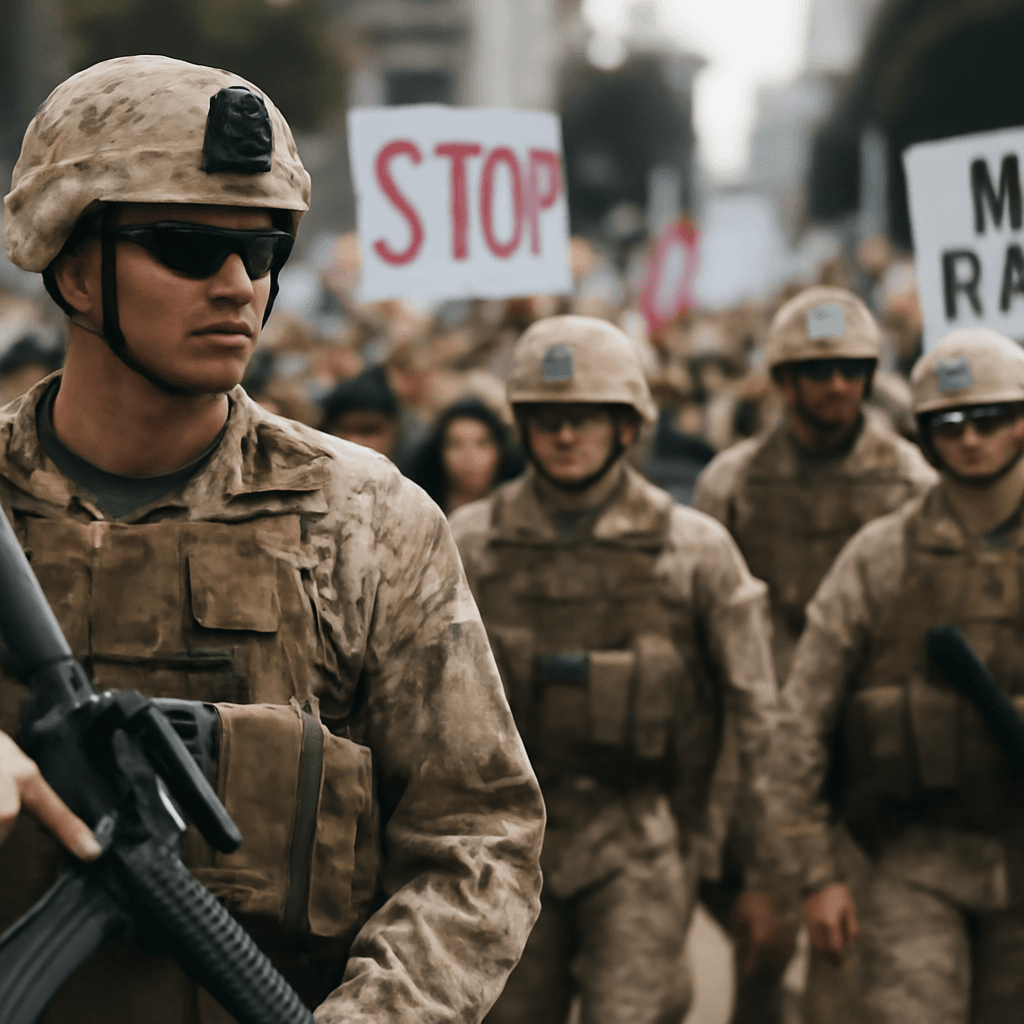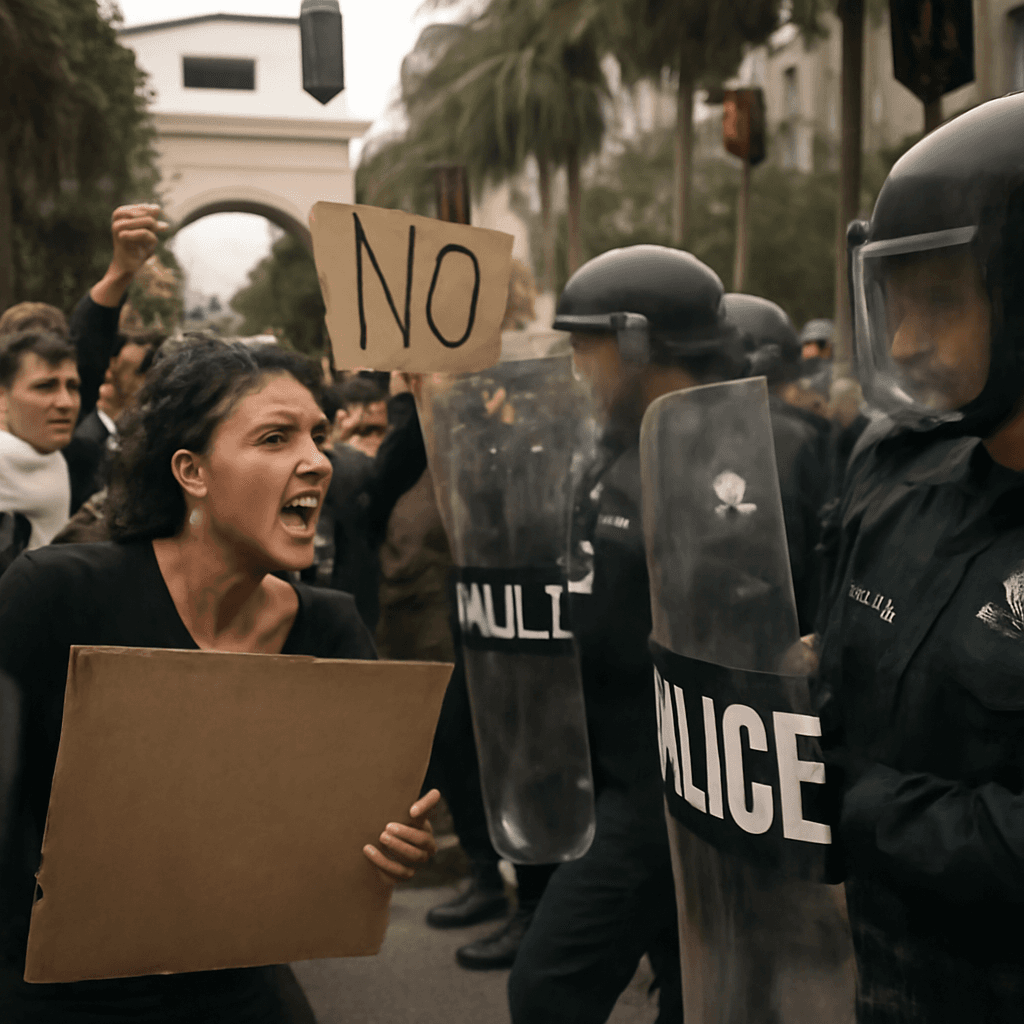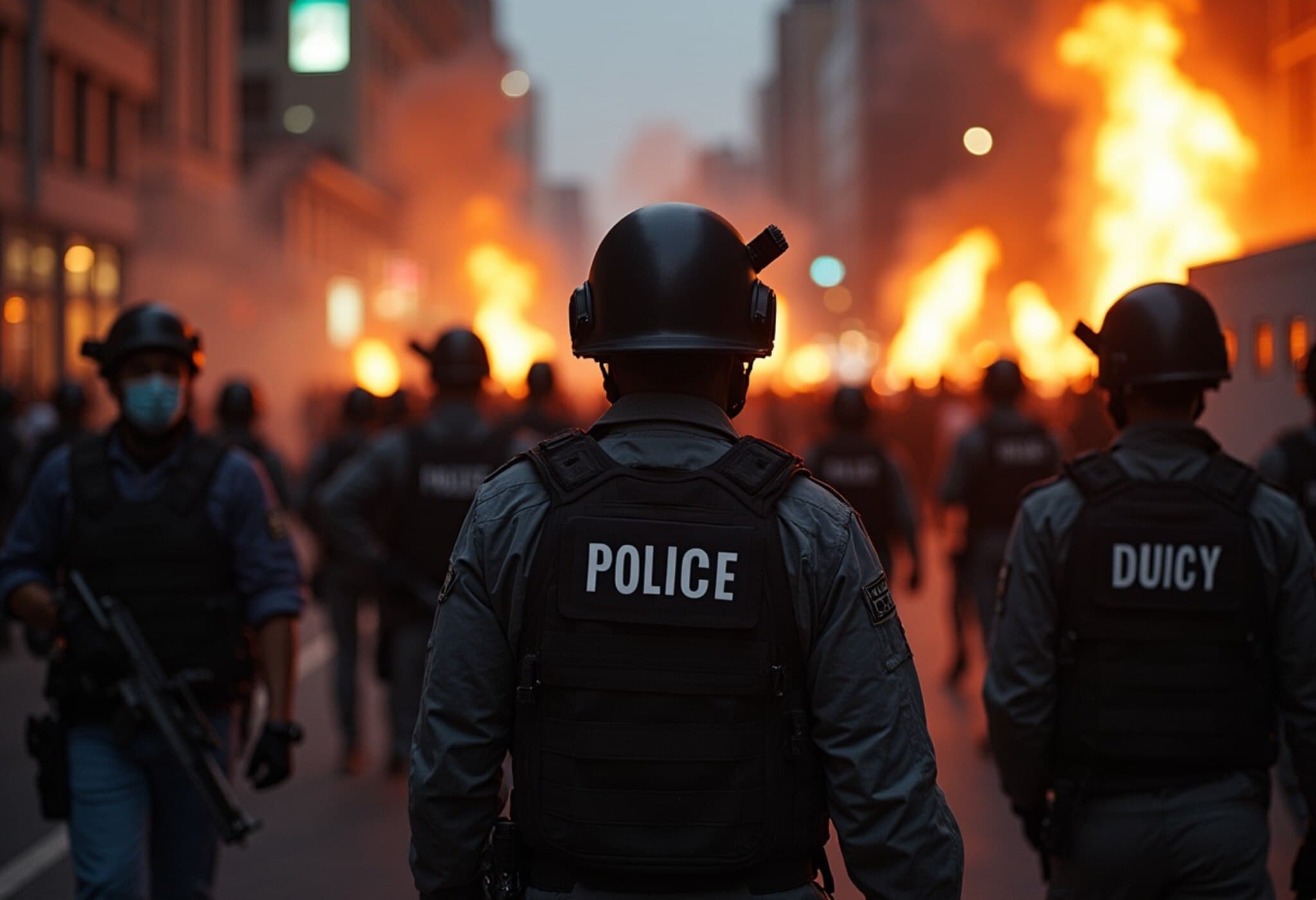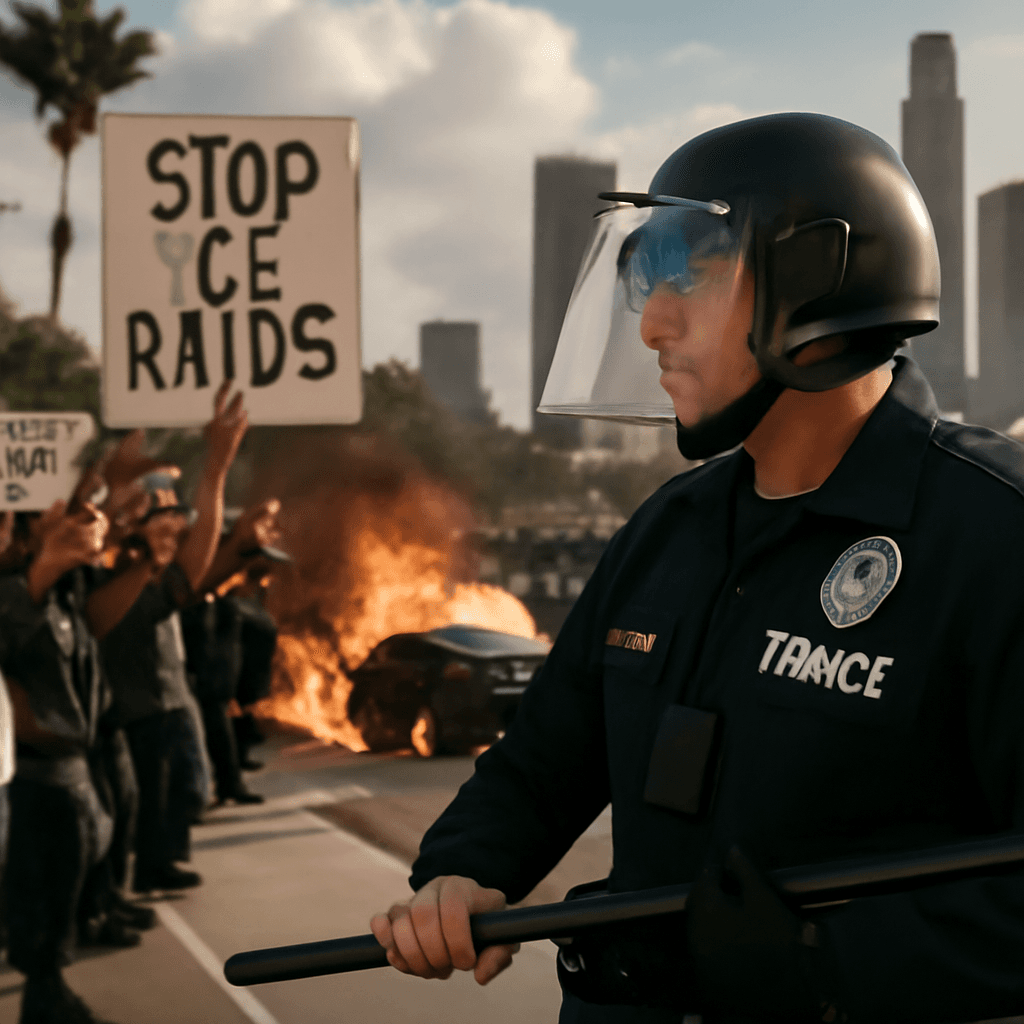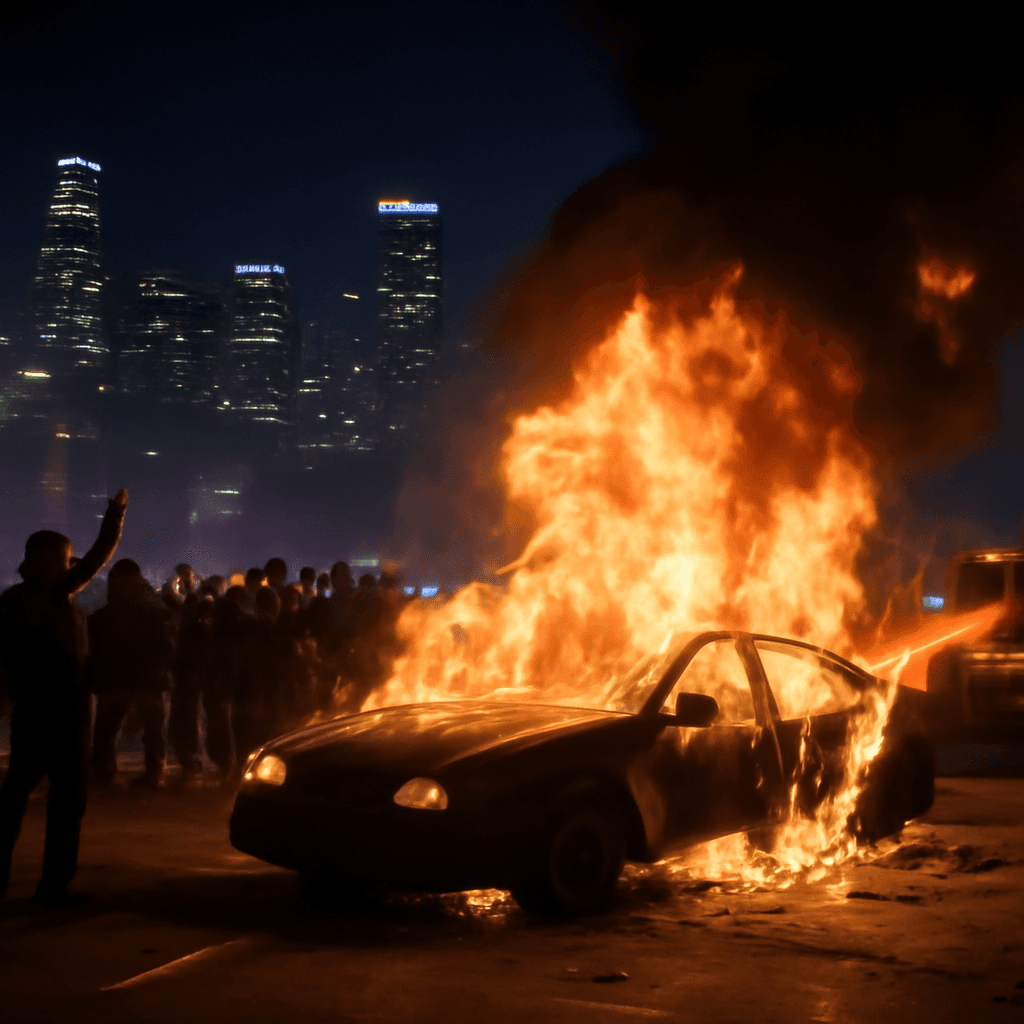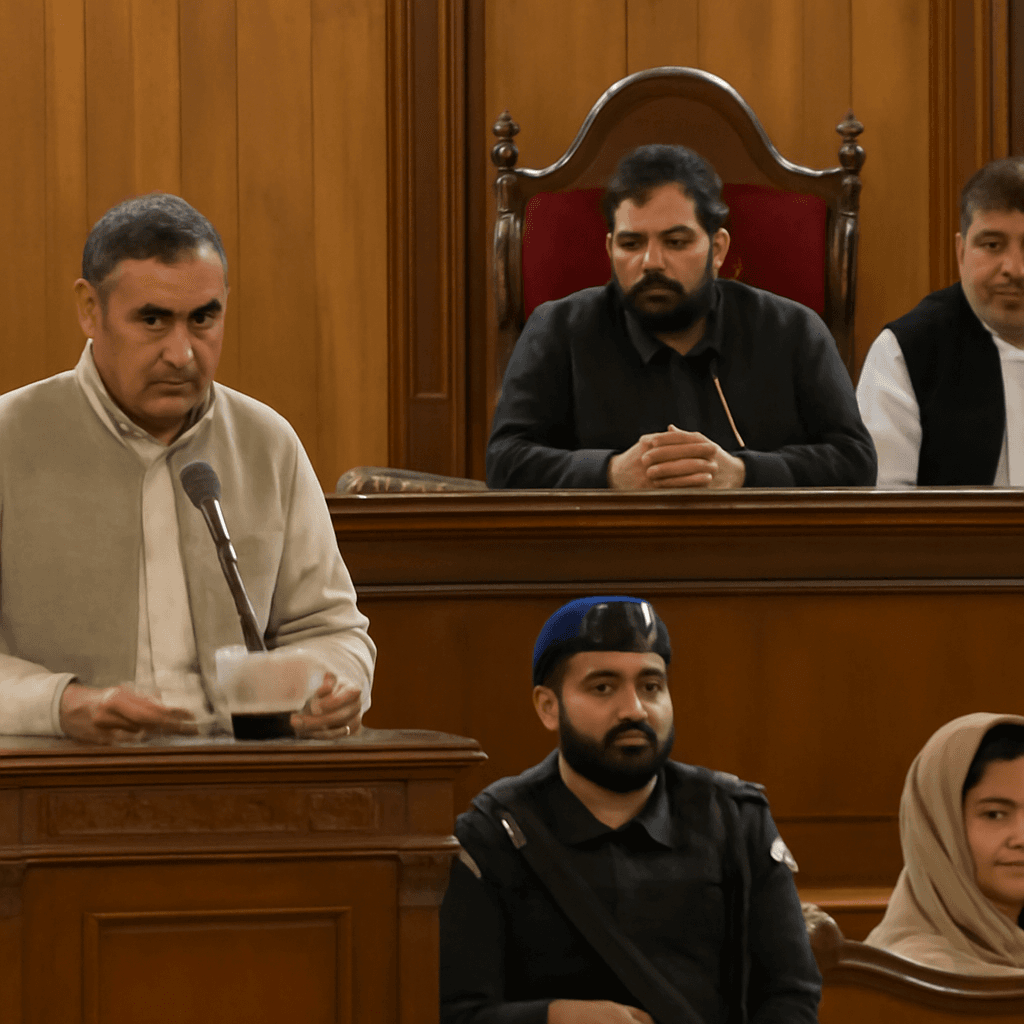Federal Immigration Raids Spark Unrest in Los Angeles
Over two consecutive days, tensions boiled over in Los Angeles County following intensive immigration raids by federal agents. Targeting locations including a Home Depot and a nearby meatpacking plant in the predominantly Latino suburb of Paramount, the operations resulted in the detention of over 121 immigrants in just one day. The backlash was swift: protesters gathered, clashing with authorities as flash-bang grenades and tear gas disrupted demonstrations outside federal processing centers.
The Trump administration responded by branding the protests as a "form of rebellion," invoking a rarely used legal clause to justify deploying troops. In stark contrast, California’s leadership criticized the crackdown as a politically motivated maneuver, opposing federally mobilized forces despite preparations for National Guard deployment.
Clashes Turn Violent: Burning Barricades and Rubber Bullets
Scenes in Paramount resembled a chaotic battleground. Protesters launched glass bottles and fireworks while federal officers retaliated with pepper balls and rubber bullets. At one point, a Home Depot shopping cart was set aflame and transformed into a barricade. The crowd, chanting in Spanish and holding makeshift signs alongside their phones, faced aggressive dispersal tactics. Meanwhile, motorbikes darted through the turmoil, dramatizing the day’s unrest where music, tear gas, and palpable tension intertwined.
Governors Push Back Against Federal Overreach
California Governor Gavin Newsom condemned the federal deployment as theatrical rather than necessary, emphasizing the state's ample local law enforcement resources. "There is a shortage of federal restraint," he declared, noting that no official request had been made for troop assistance. Despite this, by evening, federal forces were en route, invoking a clause historically used during civil rights protests, but this time, to suppress rather than protect dissent.
Political Rhetoric Escalates Amid Protests
White House Deputy Chief of Staff framed the unrest as an "insurrection," urging decisive action with posts urging to "deport the invaders, or surrender to insurrection." Border enforcement officials vowed the raids would continue unabated, signaling a hardened stance compared to previous protests where federal intervention was more restrained.
Military on High Alert Amid Rising Tensions
For the first time since the Rodney King riots of 1992, active-duty Marines stationed at Camp Pendleton were placed on high alert, prepared for potential deployment in a major U.S. city without state permission. This unprecedented readiness, invoking legal justification to protect federal property and ICE agents, reflects the growing politicization and urgency surrounding immigration enforcement this election season.
Shifting Strategies: Targeting Workplaces Over Individuals
The current immigration crackdown has evolved beyond focusing solely on "criminal aliens" to targeting large-scale workplaces such as garment factories, construction sites, and fast-food outlets. FBI and IRS resources back these dawn raids, which have resulted in the arrest of an average of over 2,000 immigrants per day in just one week. The strategy prioritizes volume, sending a chilling message to undocumented workers that safety is nowhere to be found.
Economic Consequences Ripple Through Communities
These enforcement actions extend their impact far beyond immigrants, affecting American businesses dependent on their labor. In sectors like construction and landscaping, undocumented workers compose up to 20% of the workforce. Industry leaders warn of operational crises if employees are removed. Hospitality, too, faces vulnerability; even modest staff reductions could cripple restaurant operations.
Employers Caught in a Legal Catch-22
Businesses are trapped between conflicting legal pressures. Acting on suspicions about workers' undocumented status risks discrimination lawsuits, while inaction can draw ICE scrutiny. This paradox intensifies fear and uncertainty, effectively leveraging compliance without clear due process.
The Political Theatre Behind Enforcement
This nationwide spectacle serves political ends as much as legal ones. Dramatic images of workplace raids and fiery protests broadcast across media outlets galvanize political bases and distract from deeper systemic questions about immigration policy’s longstanding failures under multiple administrations.
The Future of Sanctuary and State Sovereignty in Question
Los Angeles’ experience signals a critical test of federal authority against state and local jurisdictions seeking to limit immigration enforcement. The administration’s use of legal language criminalizing protest when it conflicts with immigration efforts raises pressing concerns about constitutional rights and the balance of power.
As the dust settles, one question looms large: is this the dawn of an aggressive new federal strategy or a troubling erosion of states’ rights? Either way, the battle lines in the immigration debate have been drawn sharply—and Los Angeles stands at the epicenter.

